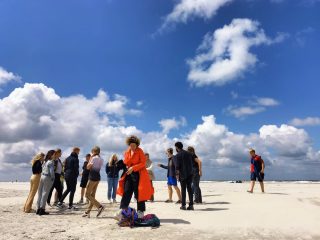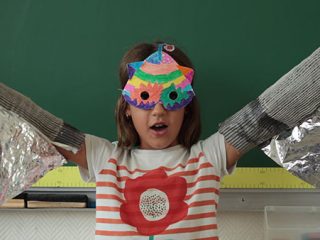“WE ARE OCEAN Vancouver: Cease Wyss’s ocean botany”
(as part of UN Ocean Decade Laboratories).
Invited by UN Ocean Decade Laboratories: Laboratory 1: “An Inspiring and Engaging Ocean” Satellite Activities 2021: ARTPORT_making waves was invited by the UN Ocean Decade to host an online satellite activity. And we created this new format: Cease Wyss’s ocean botany private lesson brings the ocean of British Columbia, Canada, to the curator Anne-Marie Melster, teaching her all about the interconnection of medicinal plants of British Columbia and their impact on ocean health. The event will be an introduction to this vast botanical and marine topic and the audience is invited to participate with questions and reports of their experiences. The chosen interactive format is “fishbowl one-on-one” which means that two main characters will lead the discussion and in each chapter one participant from the audience is invited to interact. The session aims at bringing indigenous knowledge at the intersection of ocean, land, and human health to a broader, non-expert particularly young audience, and explain how important ancient knowledge is for marine protection on the example of medicinal plants in British Columbia, Canada. T’uy’t’tanat- Cease Wyss is one of the commissioned artists for WE ARE OCEAN Vancouver. She is an Indigenous Ethnobotanist and interdisciplinary artist who works with digital media and other mediums is a community-engaged and public artist. Her recent work is based on permaculture and Coast Salish forms, as presented through earth mounds as garden beds. Anne-Marie Melster is an art curator, writer and advisor focusing on social and environmental issues. As the co-founder and executive director of ARTPORT_making waves, she creates interdisciplinary projects which search for environmental and social solutions. She has curated numerous international art exhibitions and projects in collaboration with renowned institutions, organizations and governments worldwide, also for several UN Climate Change Conferences. She created WE ARE OCEAN Global Program. WE ARE OCEAN Vancouver is an interactive journey created by ARTPORT_making waves commissioned by Vancouver Biennale delivered by the Vancouver artists T’uy’t’tanat Cease Wyss and Olivier Salvas where students of British Columbia reflect on the effects of climate change on the ocean and how this is affecting the ecosystems and the indigenous culture of the land of the Squamish, Tsleil-Waututh & Musqueam First Nations through activities based on the First People Principles of learning and on STEAM (Science, Technology, Engineering, Arts, Mathematics) principles. Students go through four modules of learning available on an application adapted for remote learning and in-class instruction. Through the modules of instruction, students learn about the relationship of our local indigenous people with the ocean, the Pacific Northwest diversity of life and the ecosystems, climate change, and ocean health and shorelines. In the summer of 2021, all participants will take part in a year-end art project on the theme of giving back to the ocean inspired by local indigenous practices. The session WE ARE OCEAN Vancouver: Cease Wyss’s ocean botany private lesson aims at bringing indigenous knowledge at the intersection of ocean, land and human health to a broader audience and explain how important ancient knowledge is for marine protection on the example of medicinal plants in British Columbia, Canada. Our project is particularly aligned with the Ocean Decade’s goal to respond to the needs of an inspiring and engaging ocean where society understands and values the ocean. This project WE ARE OCEAN and the proposed online private class is contributing to the Ocean Literacy Programme by translating ocean-related knowledge, which in this case is going beyond ocean science and back to traditional knowledge, through an indigenous contemporary artist from British Columbia, Canada, who is also known as a botany artist, to a broad international audience. The ocean and its necessary protection is reflected from a traditional, indigenous, ancestral perspective and reconnects the land with the sea.


